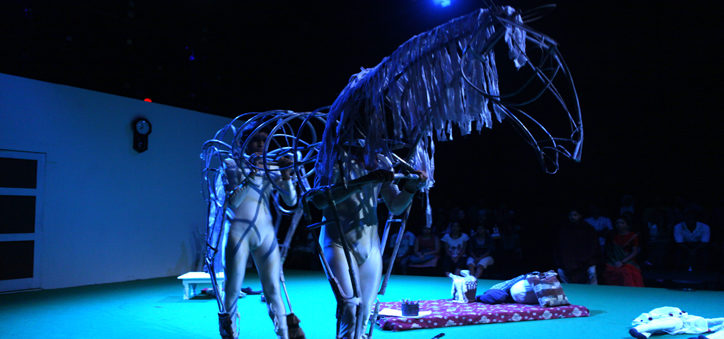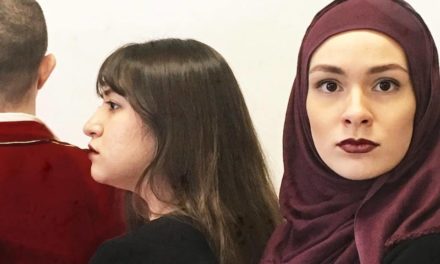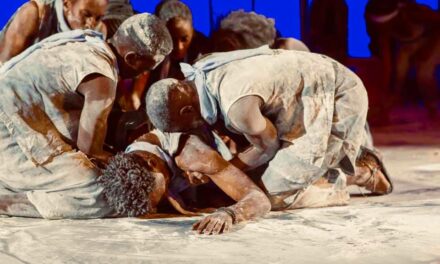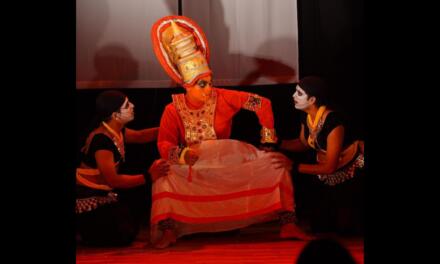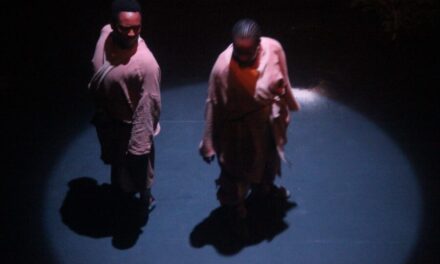In his institutional history of literature in American colleges and universities, Gerald Graff touches on the important role played by literary societies in highlighting political and cultural debates of the day. Thus as early as 1840s, a number of literary societies in American colleges discussed issues like slavery and religious doubts, and debated whether one was a Carlyleist or anti-Carlyleist, a Coleridgeian or anti-Coleridgeian.
Indian universities have their own share of literary and cultural societies which fill up the gaps left by classroom teaching. Aligarh Muslim University’s Raleigh Literary Society, one of the oldest literary societies in India has been performing this role admirably. Named after eminent English critic Sir Walter Raleigh who headed AMU’s Department of English from 1885 to 1887, Raleigh Literary Society has regularly been organizing debates and essay-writing competitions, and staging plays and performances. The events organized by the Society not only stimulate interest in literature and culture but also give students a chance to realize their creative talent. Students associated with this Society often come out with very creative adaptations of old plays and put up great performances on the stage with limited resources.
This past week Raleigh Literary Society staged a creative adaptation of Samuel Beckett’s classic Waiting for Godot and Girish Karnad’s Hayadavana in the university’s famed Kennedy Auditorium. Waiting for Godot, it may be recalled, presents an absurdist situation in which Vladimir (Didi) and Estragon (Gogo) endlessly wait for Godot who never appears. The short adapted play based on the first Act of Waiting for Godot, provocatively titled Waiting for Good Days, blends scenes from Beckett’s play with contemporary situations in Indian society. The fast-paced dialogues in the play use the design of the original but fill it with topical stuff like currency ban, black money, ‘dar vapsi’ and many others. The verbal and situational humor in the play was backed by colorful costumes and a bit outlandish make-up of characters. Lucky from the original play is given the name Mr. Question who is looking for a wife called Answer. In his incoherent chatter, regularly interrupted by his cruel master Mr. Ban, modeled on Pozzo in Beckett’s play, Mr. Question raises questions about the functioning of democracy and the devious ways of power. The very name Mr.Ban is used to refer to various kinds of banning, censorship and demonetization which the commoners like Gogo and Mr. Question are unable to make sense of. The confusion about the names of important political figures in Mr. Question’s breathless ramblings is symptomatic of the distance between the leaders and the ordinary masses. Many paradoxical expressions in the play like ‘beefless but not bloodless’, ‘eggless but not egoless’ offer a comment on some current controversies. Mr. Ban’s ironic wordplay on democracy which for him has become democrazy encapsulates the central idea of the play. The play ends with Didi’s sarcastic call to observe three minutes’ clapping noise at the demise of democracy in the hands of Mr. Ban and Mr. Question.
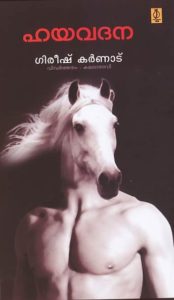 The performance of Girish Karnad’s Hayadavana was relatively more faithful to the original. However, it was abridged and it also included topical remarks made by the characters to Twitter and WhatsApp and their stars Shobhaa De and Chetan Bhagat. Coming from India’s linguistic diversity, the actors lent various accents and color to the play and the diction of different characters was sometimes changed accordingly. Hayavadana means literally a ‘Horse Head.’ The play is an adaptation of Thomas Mann’s short story, The Transposed Heads, which in itself is taken from Kathasaritsagara, an ancient collection of Sanscrit stories. The issues of identity, sexuality, and mind-body dichotomy were aptly brought out during the course of the play. The central problem in the play, ‘what is more important, mind or body’ was the highlight of this performance. The celestial world was also suitably created on the stage by the light effects and costumes, though the use of props was minimal. The celestial view that human beings should accept themselves as they are and should not suffer from a sense of incompleteness was also presented with a little bit of humor. In fact, humor was also not lacking in the staging of the swyamvar episode of the princess when she turns down dandily-clad suitors and prefers a stallion instead.
The performance of Girish Karnad’s Hayadavana was relatively more faithful to the original. However, it was abridged and it also included topical remarks made by the characters to Twitter and WhatsApp and their stars Shobhaa De and Chetan Bhagat. Coming from India’s linguistic diversity, the actors lent various accents and color to the play and the diction of different characters was sometimes changed accordingly. Hayavadana means literally a ‘Horse Head.’ The play is an adaptation of Thomas Mann’s short story, The Transposed Heads, which in itself is taken from Kathasaritsagara, an ancient collection of Sanscrit stories. The issues of identity, sexuality, and mind-body dichotomy were aptly brought out during the course of the play. The central problem in the play, ‘what is more important, mind or body’ was the highlight of this performance. The celestial world was also suitably created on the stage by the light effects and costumes, though the use of props was minimal. The celestial view that human beings should accept themselves as they are and should not suffer from a sense of incompleteness was also presented with a little bit of humor. In fact, humor was also not lacking in the staging of the swyamvar episode of the princess when she turns down dandily-clad suitors and prefers a stallion instead.
Bob Dylan song Blowin in The Wind which was used as a chorus in the performance of Karnad’s play, added a further meaning to the play. The song highlights the fact that human beings often overlook the obvious, and miss the signs that can guide them.
This post was written by the author in their personal capacity.The opinions expressed in this article are the author’s own and do not reflect the view of The Theatre Times, their staff or collaborators.
This post was written by Mohammad Asim Siddiqui.
The views expressed here belong to the author and do not necessarily reflect our views and opinions.

